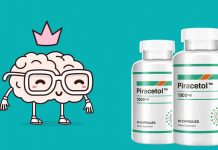
For men, developing Prostate Cancer is a huge concern. It ranks only behind skin cancer as being the most common among males. Fortunately, it’s also one of the most effectively treated cancers. Successful recovery largely depends on early detection and knowing the facts about prostate cancer, including how it’s caused, what the symptoms look like, and how it can be prevented.
What Causes Prostate Cancer
We know that people are not born with prostate cancer, rather, it develops in the prostate, but researchers still don’t know what causes that change. When the cells are changed, they begin to reproduce at an accelerated rate, which is how a tumor is formed. The cancer cells may also break off to spread to other cells in the area, which is what doctors call metastasizing.
While the initial changes to the DNA in prostate cells may be the result of a hereditary abnormality, doctors do know that certain risk factors also raise the risk of prostate cancer. For instance, older men and men of color are more likely to develop prostate cancer. Additionally, obese or overweight men are more likely to get prostate cancer than physically fit men.
The Symptoms of Prostate Cancer
As it begins to develop, prostate cancer can often go unnoticed. This is because the symptoms are mild or nonexistent in the early stages of the disease. As the cancer grows, or spreads, symptoms will become gradually more observable and, over time, will become severe. For that reason, detecting the condition early depends on identifying these symptoms as soon as they begin to develop.
- Difficulty urinating
- Inhibited force in the urine stream
- Bloody semen
- Pain or discomfort affecting the pelvic area
- Bone pain
- Erectile dysfunction
Low Testosterone Treatments
When men reach their forties and fifties, they begin to experience a drop in testosterone production. Typically, doctors will recommend hormone replacement therapy to compensate for the deficiency. This can help minimize problems like erectile dysfunction, sleep disorders, and mood changes. It’s a low-risk procedure with no link to increasing probability of getting prostate cancer, and there are many companies who specialize in this, such as Maryland testosterone replacement therapy. However, if you have prostate cancer and submit to this type of treatment, it could cause the cancer to grow faster. For that reason, before submitting to hormone replacement therapy you need to consult a doctor to make sure you are good to go.
Preventative Lifestyle Changes
While research is inconclusive in regard to the effects of diet on prostate cancer, doctors still recommend eating a healthy diet. Concentrating on fruits, vegetables, and whole grains, while eliminating foods that are high in fat and sugar, can improve your overall health. Introducing a higher quantity of nutrients and vitamins can help you stay healthier and may prevent many types of cancers from developing.
Similarly, doctors recommend frequent exercise, as a means of helping to prevent prostate cancer. Keeping fit, reducing body fat, and strengthening muscle helps build up the immune system, which means it can fight off disease more effectively. In some studies, researchers found that men who live sedentary lifestyles have higher Prostate-specific antigen, or PSA, levels than those who exercised regularly. Doctors recommend getting at least 30 minutes of moderate to high intensity physical activity each day.
How is Prostate Cancer Treated?
There are many ways to treat this type of cancer and your doctor may recommend certain treatments, based upon the severity of your condition. In addition to chemotherapy and radiation treatments, you may be able to receive a vaccine, benefit from hormone therapy, or undergo surgery to have the cancer removed. In some cases, you may have to submit to several treatments to ensure a full recovery.
Factors that may influence which treatments will be most effective may include:
- Grade and stage of the cancer
- Patient’s age and expected life span
- Other medical conditions that may affect treatment
- The expected effectiveness of each treatment
- The expected side effects of each treatment
Conclusion
This brief overview helps to outline what can be expected from a prostate cancer diagnosis, as well as possible ways to prevent the disease. However, if you’re concerned about developing prostate cancer, you should consult your doctor. Your caregiver can provide more detailed information, which will be relevant to your specific circumstances. Early detection and treatment can help you recover more fully.
Read our full review about one of the best bodybuilding supplements: Crazy Mass >>

























